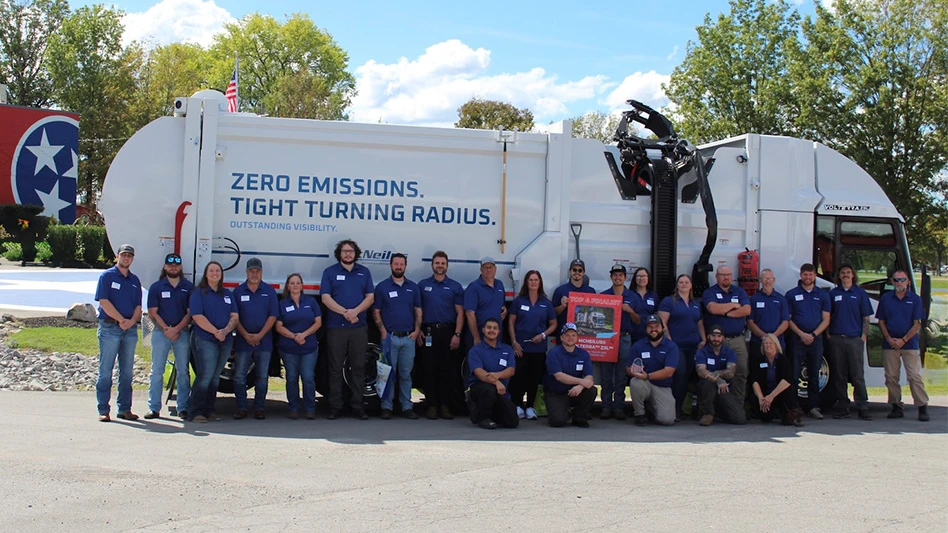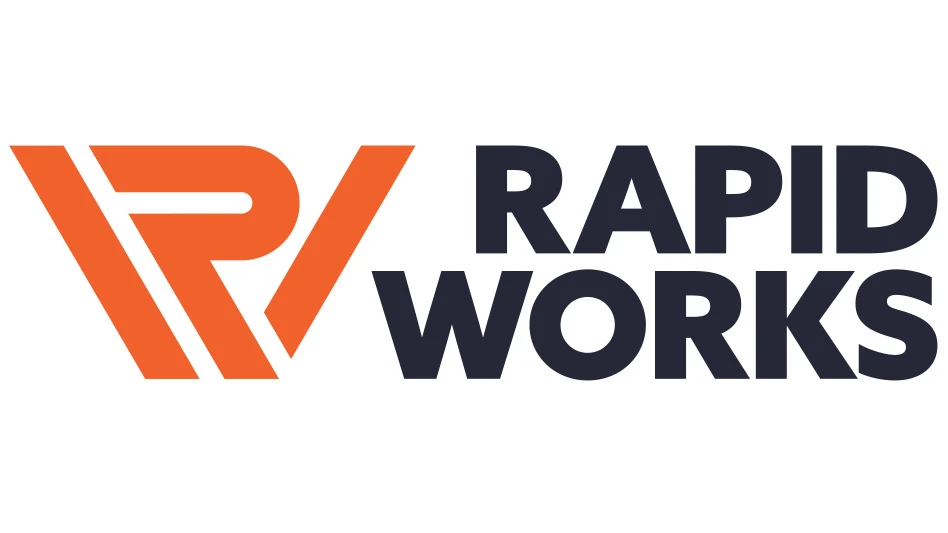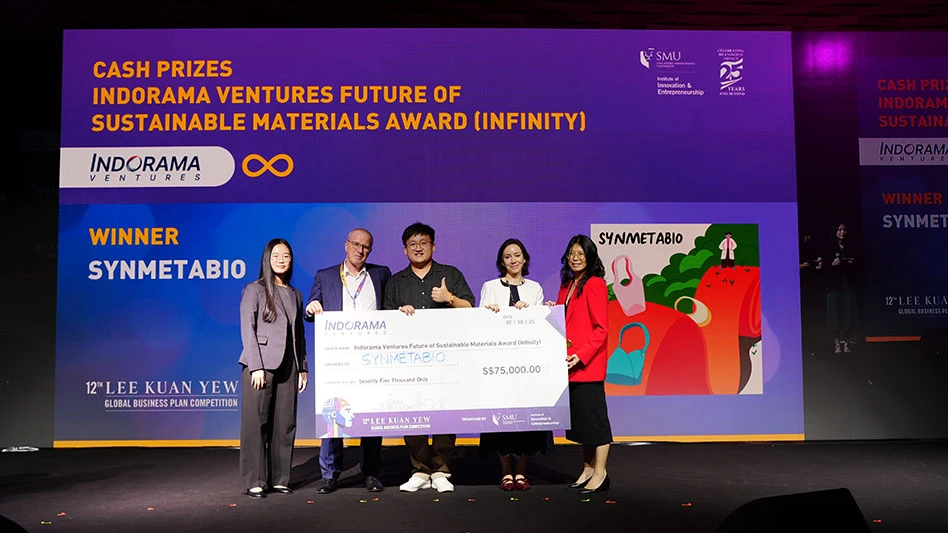
© Eti Swinford | Dreamstime.com
Municipalities and companies in the waste and recycling industry have no shortage of grant opportunities. Governmental agencies such as the U.S. Environmental Protection Agency (EPA) and the Department of Energy offer recycling and waste management-related grants, and many private organizations also offer various opportunities. Just a few of those organizations include The Recycling Partnership, The Carton Council, Environmental Research and Education Foundation, The Vinyl Institute, Glass Recycling Foundation, Foam Recycling Coalition, ReFED Catalytic Grant Fund and H&M Foundation.
During the Recycle Florida Today Annual Conference and Exhibition June 20-22 in Bonita Springs, Florida, in a session titled, “$how Me the Money,” consultants and association representatives discussed best practices for winning these grants and more to support recycling and waste management projects.
Gene Jones, president of Tallahassee, Florida-based Southern Waste Information eXchange Inc., said many organizations as well as some states are offering grants for recycling and waste management projects. He said Florida has had a Solid Waste Management Trust Fund since 1988, which receives funding from litter fines, tire fees, select permits and registrations in the state, interest and carryover from previous years. For the 2023-2024 fiscal year, Jones reported that the SWMTF is expected to receive almost $27 million in income. While much of this income is budgeted for state-related waste management projects, he noted that about $3 million is left unspent by the fund every year.
“Usually there’s $2 to $3 million left in the trust fund that is unspent, so if you’re going to ask for money, this is a potential funding source,” he said.
Natha Dempsey, president of the Falls Church, Virginia-based Foodservice Packaging Institute, said municipalities and companies looking to grants to help with projects should keep in mind whether the grant source is coming from a governmental agency or a private corporation or nonprofit.
“A lot of the public [government] grants, if you’ve done a public granting process before, it’s pretty lengthy and pretty specific, requiring lots of information,” Dempsey said.
She said grants coming from private organizations and nonprofits might not offer as much money as those from the EPA or large governmental organizations, but the grant application process tends to be more flexible with private organizations than with a governmental agency.
There’s more flexibility," Dempsey said. "And if you’re looking for money, we are giving money away on a yearly basis. Our foam grant program tends to have a granting period of sometime in January and April. But if you’re interested in foam recycling, you can probably approach us, and we will either take your application and keep it in a holding pattern until next year, or we can talk about it because sometimes we have extra money around we can give out.”
Finding good fits
When applying for grants, Maggie Orozco, a communications specialist at Ann Arbor, Michigan-based Resource Recycling Systems (RRS), said municipalities and companies should first consider if their project goals align with any grant goals.

and Maggie Orozco
“Identify what your project goals are and what your desired outcomes are, then go ahead and research those grant opportunities,” Orozco said. “Read carefully the eligibility criteria, both for the applicant and for the project.”
She added that municipalities and companies should make sure the project meets eligibility requirements outlined in a grant application as well. If a project can’t meet deadlines outlined in a grant application, it’s likely not a good fit.
Additionally, Orozco said municipalities and companies should consider getting outside input on a project’s plans from an outside consultant before applying for a grant. She added that the actual application should be clear and detailed.
“The more details that you have, it’s going to be better,” she said. “You want to include your methodology, your evaluation process, your budget, your timeline. Even if you don’t get it, a lot of these grants are cyclical, so you can apply again. Or, if you didn’t get the grant, reach out and say, ‘I applied—can you give me some feedback on my application?’”
For government-issued grants, Hala Sfeir, president of Longwood, Florida-based JHS Environmental Engineering, advised municipalities and companies to find a state representative or someone working in government who can help advocate for the project.
“Find someone in the county or someone connected to the state representative and talk face to face. That has worked with us,” she said.
Sfeir added that most grants issued by the state of Florida are listed online. She recommended companies look at winning applications to see what stood out.
“See if there was anything specific that you can copy from or just get ideas because they received the money,” Sfeir said.
She said municipalities and companies shouldn’t be scared to apply for grants offering millions of dollars nor should they shy away from applying for multiple grants at the same time.
“I used to be very scared and only apply for $500,000 grants,” Sfeir said, adding that JHS Environmental helped a client apply for a $2.9 million grant this past year and received it.
For larger projects, she added that it can help if an application gets detailed and lists various phases involved in the project. “Listing the phases really helps. For example, it’s a five-year, six-phase project, and every year we’re asking for $1 million.”
Dempsey said many private organizations that issue grants like to see that the applicants are also leveraging some of their own funds for the project.
“It always looks good if you’ve got money yourself that you’re willing to put forth with some skin in the game,” she said. “In terms of preparing, I think it’s good if you can say, ‘Hey, I can pay for this, but some help would be great because then I can take those funds that I was going to use on this piece of equipment and move it over here.’ Being prepared is always a good plan.”
Latest from Recycling Today
- ReMA to launch virtual fiber-focused event
- DuPont announces winners of Tyvek Sustainable Healthcare Packaging Awards
- HRH Metals gets new owner
- ESGL files provisional patent for acidic waste metal recovery technology
- Alabama awards $2.5M in grants to boost recycling efforts
- Sourgum expands services to Indianapolis
- Tomorrow Recycling seeks investment opportunities
- ArcelorMittal endorses EU steel trade measures






